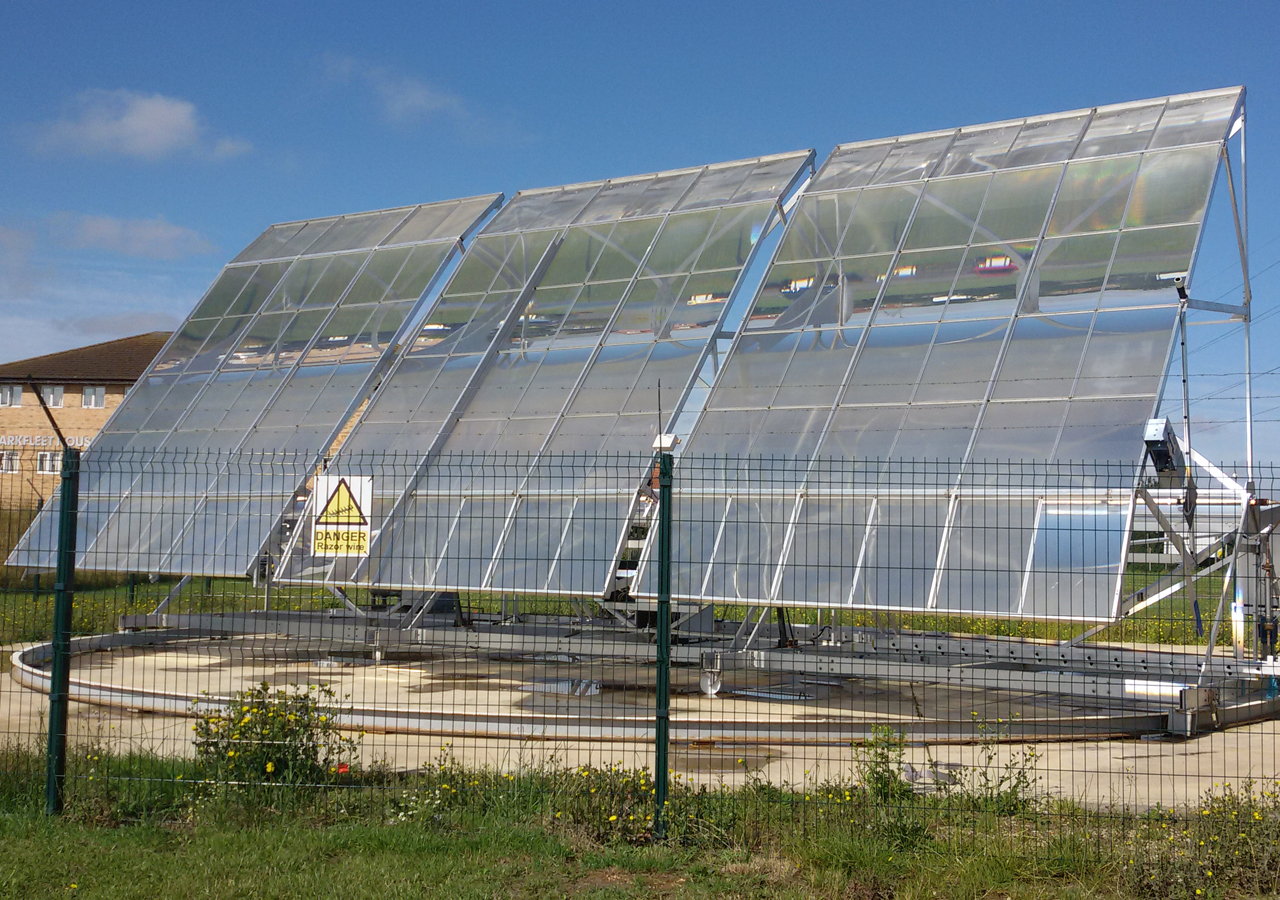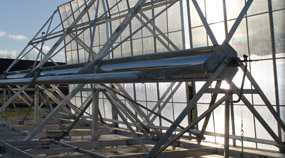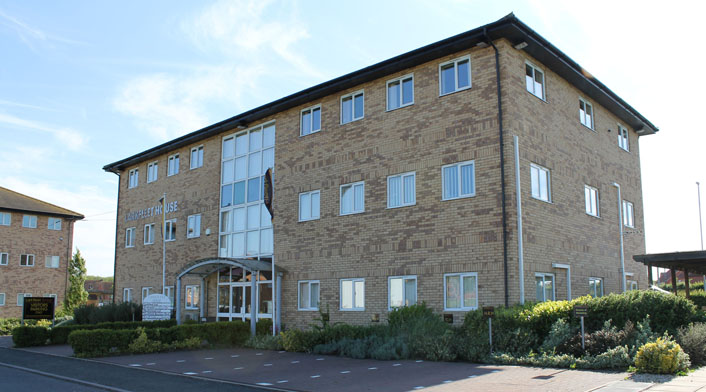
Current concentrated solar thermal (CST) technologies use mirrors as reflectors to focus the solar radiation.
The Solar Steam technology represents an innovative system to concentrate the solar radiation. The key differentiator is the use of plastic Fresnel lenses instead of glass reflectors. Fresnel lenses are more flexible in optical design and less expensive in manufacturing when compared to conventional mirrors.
The Solar Steam experimental prototype pictured on this website was tested alongside the Phoenix head office in Bourne, Lincolnshire, UK. It was the first real scale solar thermal linear concentrator using Fresnel lenses.
European and international patent applications have been made.
The heat demand for industry represents 76 per cent of the sector's total final energy consumption and 57 per cent of this energy is needed at low or medium temperatures. The potential installation capacity for CST systems is estimated to be 60 GW in 2050.
Solar Steam has been developed to meet this vast demand from industry. The system might also be used to desalinate sea water or purify polluted water to produce clean drinking water.
Although the first prototype was installed in UK, the major market opportunity is likely to be in warmer countries where the direct radiation from the sun is higher and more consistent.
The Solar Steam system consists of several rectangular Fresnel lenses which focus the sun's rays onto a metal tube filled with water. The frame carrying the Fresnel lenses rotates to track the movement of the sun through the sky during the day using a fully automatic system.
The experimental rig consisted of three modules having a total length of 13m (42 feet) and a height of 5.5m (18 feet) when extended to its maximum. There were 108 Fresnel lenses installed for a total aperture area of more than 75m2.

The experimental Solar Steam rig provided an opportunity for investigation of this new method of low carbon energy generation. It is another example of Phoenix's commitment to innovation and energy efficiency.
Phoenix has used this research and development opportunity to gain a better understanding of the technology involved and its possible uses. The system is now being tested in India and Mexico.

Phoenix Group develops and delivers commercially sound, ground-breaking solutions for a sustainable tomorrow. The Group originally evolved from the Larkfleet Group, building upon Larkfleet’s reputation as a forward-looking and innovative business. It has now grown into a company with a wide range of interests, all of which have the same focus on developing sustainable services and products which make a difference.

Phoenix is currently involved in testing the Solar Steam concept in Mexico and India.
In Mexico Phoenix is seeking to deliver a pre-commercial demonstration of Solar Steam at a site in Morelos in Mexico. Phoenix will develop the pre-commercial demonstrator in collaboration with academic and industrial partners in Mexico and with the support of Queen Mary University of London. Phoenix will contribute £160,000 to the total project budget of £800,000.
In India, Phoenix is developing a mobile version of its Solar Steam system designed to deliver renewable heat and power in remote areas of rural India. The two-year project will be delivered by Phoenix in partnership with Cranfield University and an Indian solar collector manufacturer. The total budget is about £550,000 and Phoenix is directly contributing £128,000 to see the project to fruition.